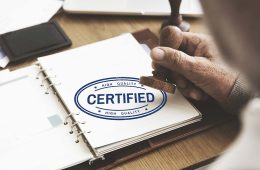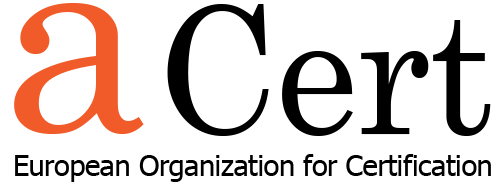how can we help you?
Contact us at the Consulting WP office nearest to you or submit a business inquiry online.
Having values, we offer strictly professional services and through the recognition and reputation of the A CERT, our associated companies and structures and strategic collaborators, we add value to the products, services, institutes and organizations giving them a competitive advantage and making them capable of achieving a dominant position in national and international level.

Tourism sector Certifications

Objective:
a Cert certification system aims to ensure hotels and accommodations meet specific quality and service standards, enhancing guest experience and promoting trust in the industry. By adhering to established standards and obtaining relevant certifications, hotels can demonstrate their commitment to quality and elevate the overall guest experience. This fosters trust within the industry and empowers travelers to make informed choices.
Components:
1. Standard Setting Body:
- An independent organization (e.g., national tourism board, industry association) establishes classification criteria.
- Stakeholders like hoteliers, consumer representatives, and government officials contribute to defining standards.
2. Rating and Certification Bodies:
- Accredited organizations conduct assessments against the established criteria.
- This can involve a combination of:
- Desk Audits: Reviewing documentation like guest manuals, service protocols, and safety procedures.
- On-Site Inspections: Evaluating facilities, amenities, cleanliness, and staff training.
- Mystery Guest Stays: Trained individuals anonymously assess guest experience firsthand.
3. Certification Process:
- Application: Hotels apply to a rating/certification body.
- Self-Assessment: An initial self-evaluation based on the established criteria is conducted by the hotel.
- Evaluation: Assessors conduct audits and inspections as mentioned above.
- Corrective Actions: Identified shortcomings require corrective actions with verification by the certification body.
- Rating/Certification Granting: Based on the evaluation outcome, the hotel receives a rating (e.g., star system) or a certificate of compliance.
4. Maintenance and Recertification:
- Regular audits or mystery guest visits ensure continued adherence to the standards.
- Recertification at specified intervals (typically 3-5 years) is required to maintain the rating/certification.
Standards:
General Criteria:
- Facilities: Cleanliness, maintenance, amenities offered (e.g., bedding quality, internet access).
- Services: Staff courtesy, responsiveness, housekeeping efficiency.
- Safety and Security: Fire safety measures, emergency protocols.
Additional Considerations:
- Sustainability Standards: Certification programs may recognize eco-friendly practices (e.g., water conservation, energy efficiency).
- Accessibility Standards: Cater to guests with disabilities.
- Specialized Certifications: Programs may exist for specific accommodation types (e.g., boutique hotels, bed and breakfasts).
Benefits:
- Improved Guest Experience: Ensures hotels meet minimum quality standards.
- Enhanced Reputation: Certification signifies adherence to established benchmarks.
- Competitive Advantage: Attracts guests seeking reliable and trustworthy accommodation options.
- Benchmarking and Improvement: Provides a framework for hotels to identify areas for improvement.
Tourism sector Services
-

Quality Management System according to ISO 9001
Read moreCertification for a quality management system is no other than an official recognition of its actual implementation and introduces a competitive advantage for a company towards competition.
-

Food Safety Management System according to ISO 22000
Read moreManagement Systems for food safety, introduce a documented method of possible risks in processing, throughout the whole chain of food production, distribution and final consumption.
-

Environmental Management System according to ISO 14001
Read moreAn environmental management system according to ISO 14001:2015 includes all organizational structure, practices, procedures, sources and liabilities that a single company has to adopt
-

Information Technology Services Management System according to ISO 20000
Read moreInformation Technology Service Management System (ITSMS) according to ISO/IEC 20000. This standard applicable to any organization, large or small, in any sector or part of the world which relies on IT services.
-

Information Security Management System according to ISO 27001
Read moreInformation Security Management System by ISO/IEC 27001:2005. A CERT certifies Information Security management systems according to the international standard ISO 27001:2005.
-

Tourism Sector Stuff
Read moreThe tourism industry is not only subject to specific tourism regulations, but also to regulations primarily designed for other areas, such as the environment, consumer protection, and the preservation of cultural and historical heritage.
-

Classification
Read moreGreece has a system for classifying hotels and other accommodations using a combination of stars and keys.
-

Rapid Test Devices
Read moreHigh performance rapid test enables immediate treatment or isolation measures to minimize transmission. Accessible, easy-to-deploy, large-scale testing helps contain the virus spread.
-

Coronavirus SAFE
Read moreNew Certification Standards for Preventing and Treating Covid-19 Pandemics are presented by the Certification Body “A CERT European Certification Organization SA” having as its main concern the safety and health of consumers.
-

Management System according to GMP/GMP+
Read moreThe feed industry is an important part of the food chain since what animals eat plays a crucial role in the safety and quality of the food, we derive from them. The GMP+ certification system is precisely tailored to the animal feed industry.
-

Management System according to GHP/HACCP/Codex Alimentarius
Read moreFood Safety Management System by ISO 22000:2005, HACCP/ GHP/Codex Alimentarius. A CERT certifies food safety management systems, according to the international standard ISO 22000:2005
-

Credit Risk Evaluation
Read moreIn cooperation with our strategic partners in Europe we offer evaluation services for Funding, Banks, Venture Capitals, Business Angels and Real Estate Industry in the following field according to international recognized standards
-

Asset Evaluation
Read moreIn cooperation with our strategic partners in Europe we offer evaluation services for Funding, Banks, Venture Capitals, Business Angels and Real Estate Industry in the following field according to international recognized standards as follows:
-

Cosmetics Good Manufacturing Practices (GMP) in compliance with ISO 22716
Read moreThe categories of certified cosmetics products covered by A CERT are the following:
a) Natural Cosmetic Product
b) Cosmetic Product Containing Organic Ingredients
c) Organic Cosmetic Product -

Due Diligence
Read moreDue diligence is an investigation, audit, or review performed to confirm facts or details of a matter under consideration. In the financial world, due diligence requires an examination of financial records before entering into a proposed transaction with another party.
-

European Union Regulation requirements for registration
Read moreEuropean Union Regulation requirements for registration
-

Business Continuity Management System according to ISO 22301
Read moreISO 22301 is the international standard for Business Continuity Management (BCM). Published by the International Organization for Standardization, ISO 22301 is designed to help organizations prevent, prepare for, respond to and recover from unexpected and disruptive incidents.
-

Food Safety Management System according to FSSC 22000
Read moreManagement Systems for food safety, introduce a documented method of possible risks in processing, throughout the whole chain of food production, distribution and final consumption.
-

Analytical Laboratory Services
Read moreThe range of services covers: Allergens, Medicines, Dioxins, Genetically modified Organizations (GMOs), Microbiology, Plant, Toxins, Environmental
-

Quality & Quantity Inspection
Read moreAs methodologies and processes for determining the quality and quantity of agricultural commodities have evolved over the years, it is imperative to apply the most current standards and technologies.
-

Pre Shipment Inspection (PSI)
Read moreA pre-shipment inspection (PSI) is a quality control process that involves inspecting goods before they are shipped to ensure they meet the required quality standards and specifications.
-

Intellectual Property and Intangible Assets
Read moreIntellectual property is a general term for the set of intangible assets owned and legally protected by a company from outside use or implementation without consent.
-

Damage Assessment
Read moreDamage Assessment is the process for determining the nature and extent of the loss, suffering, and/or harm to the community resulting from a natural, accidental or human-caused disaster.
-

Intellectual Property
Read moreIntellectual property is a general term for the set of intangible assets owned and legally protected by a company from outside use or implementation without consent.


